On Love Island Malta
Part of a blog series called ‘on resistance’, aimed towards people who belong to the creative industries. Find other entries here.
Love Island is one of the most popular reality show franchises worldwide, created by British media company ITV Studios and disseminated to more than 20 countries across 5 continents. A Maltese adaptation of the show, ‘Love Island Malta’, debuted in 2023 on TVM, and proceeded to break all national broadcasting records during its Season 1 finale, with more than 239,000 viewers tuning in to the show.
Unashamedly, I was one of those 239,000 viewers. The first season of Love Island re-introduced a whole swarm of teenagers back to Maltese television, if not just to watch this one show – a total of 93% of the population between ages 16 to 25 reportedly watched the first season. Admittedly, Love Island served me as the perfect opioid to help me forget about the stresses of my final year University exams, and was a very welcome addition to the programming of my living room TV set. Needless to say – I was a huge fan.
This year, on Love Island Malta’s third and biggest season, I was a vision director. To the uninitiated, this means that I worked as a director in the control room, controlling the 30+ PTZ cameras that are spread across the villa’s 10 main areas, and vision mixing these camera feeds into one single video stream that are then given to the editors to make each episode. I was in the villa on every single day of production, with my shifts mostly starting on ‘lights on’ (i.e. when the islanders wake up) and ending in the late afternoon, around 4 to 6PM.
Yesterday marked the Season 3 finale of Love Island Malta. If you want to stick around, I’d like to give you some insight behind the curtains.
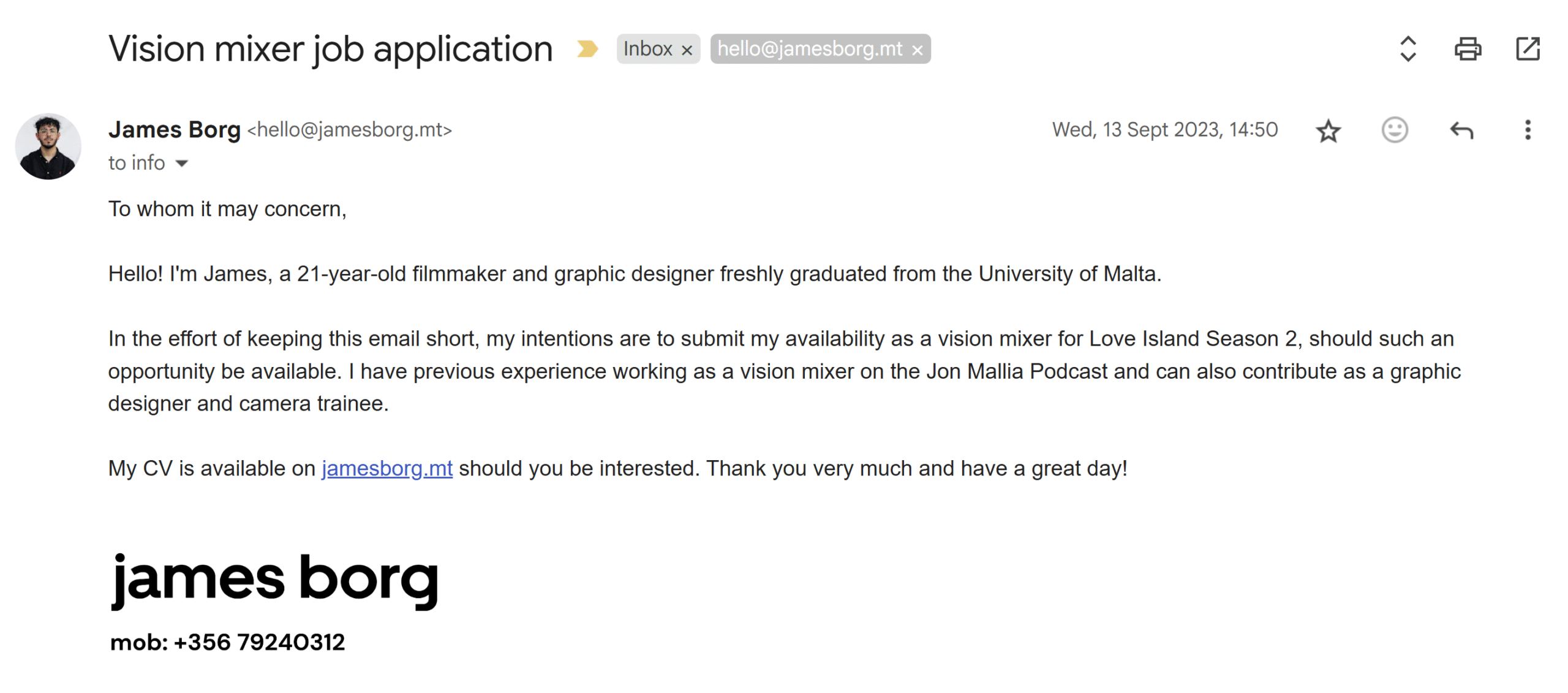
Around September of 2023, I sent a cold email to Media Exclusive, the local production company in charge of producing the show. I’m a huge believer in cold emails- I owe countless job opportunities and travel experiences to them. To my surprise, this particular cold email was met with a reply in no less than 10 minutes after I sent it.
A couple of months later, for Love Island Malta’s second season, I was hired as a vision director, working infrequent night shifts and acting more or less as a reliever to other directors. Night shifts on Love Island are more or less surveillance jobs, since the islanders are (supposed to be) asleep. On select night shifts, however, I would have islanders wake up in the middle of night to have something to eat or to chat with another islander… and it was during these small, stolen moments where I would really familiarise myself with the gigantean equipment in the control room and make heads and tails of it all.
To cut a long story short, I started to rapidly develop my skills… and the crew took notice. Eventually, Lara Caruana (the de-facto production manager) started calling me in for more day shifts closer to the end of the second season – but by then, there weren’t many shifts to cover anyway.
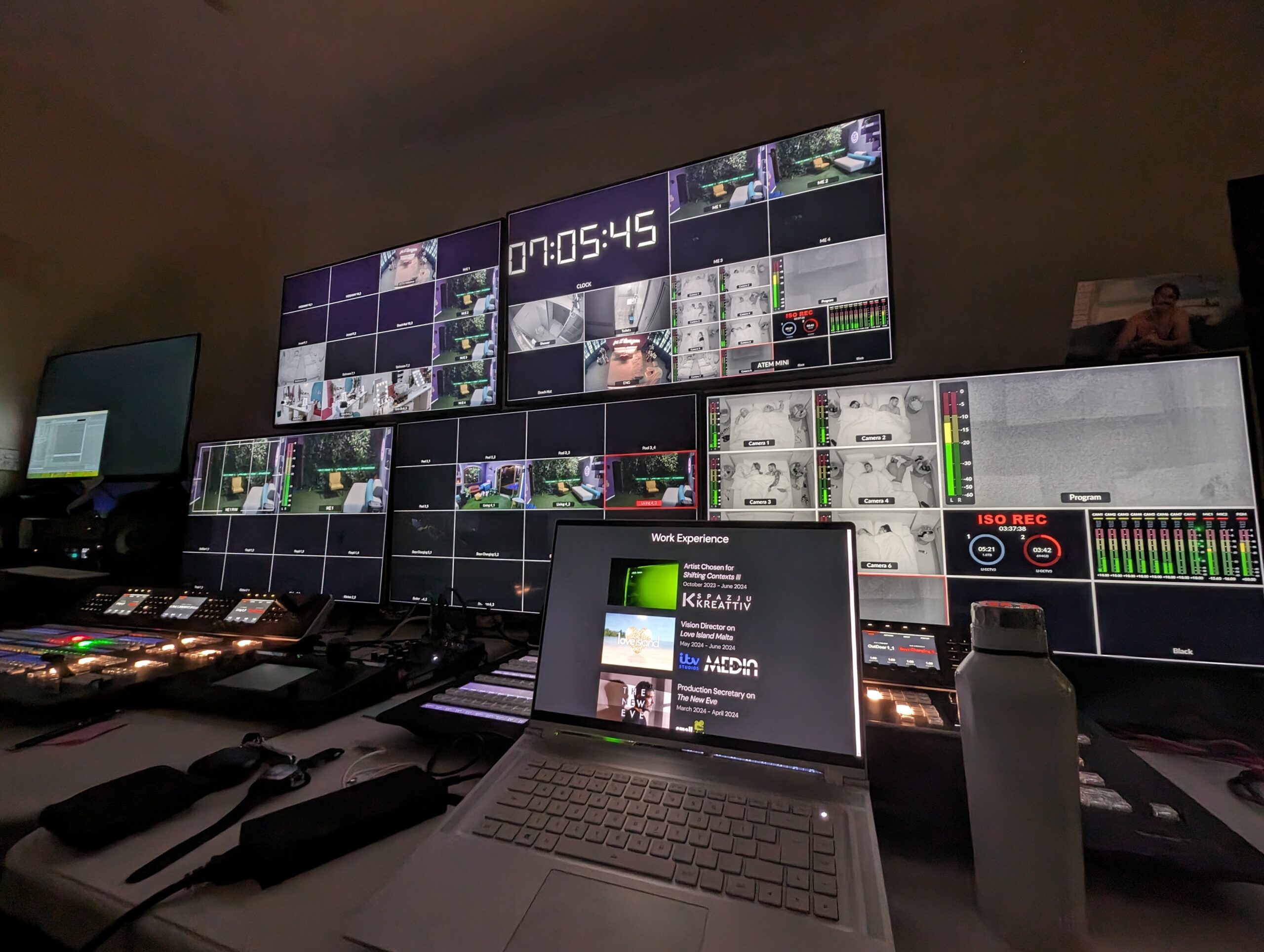
I took good advantage of these sparse day shifts, however. When I wasn’t live cutting, I was glued to Mick Laus’ back (who is my mentor, the senior vision director, and one of the island’s finest multicamera directors) observing his every directorial decision and taking mental notes on how I can improve my own work. I kept up this routine until season 2 ended, which was met with similar praise amongst Maltese viewers (which for season 2 was practically half of the population).
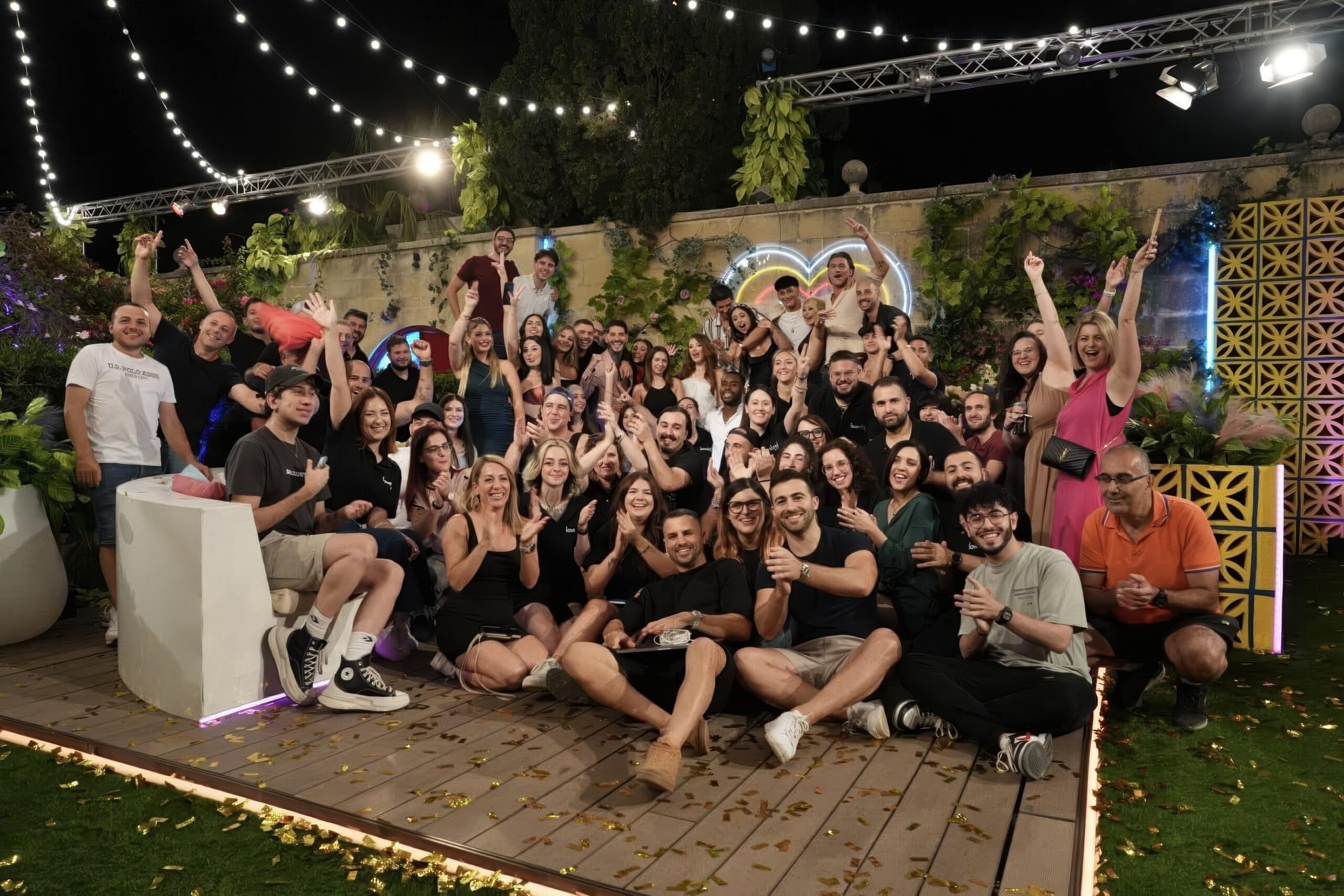
For season 3, I was offered to join the core directorial team for Love Island Malta. This time round, there would be no night shifts, and I was being effectively promoted to second in command after Mick. When Lara made me the offer, in hindsight I didn’t really fathom what this meant – safe to say I didn’t need much convincing to accept.
This brings us to the 7th of May, 2025.
The 7th of May was my first day back in the control room after months of absence. The villa was hauntingly quiet and empty, and I was sitting alone waiting for Mick to arrive and have a meeting. We said our hellos and he started explaining my responsibilities: in proverbial terms, the ship was mine to sail everyday from morning to late afternoon. This time round, I wouldn’t be shadowing him – instead I’d be directing solo, aided only by a story producer, a sound mixer and a logger.
As he explained further, it started to dawn on me; the ship I’m sailing isn’t some cute kayak, it’s the TV equivalent of a tanker ship. My work wouldn’t feature on any odd show, but on Love Island Malta, the most viewed show in Maltese television history.
Something that I never shared with any of the show’s crew members is that, on that fine Wednesday afternoon, I went home and had one of the worst panic attacks I’ve ever experienced. As I watched a BBC News broadcast of the Sistine Chapel chimney (the conclave was on), my heart pounded so fast that I broke into a cold sweat and fell ill in bed. Safe to say that I didn’t sleep much that night… or the next.
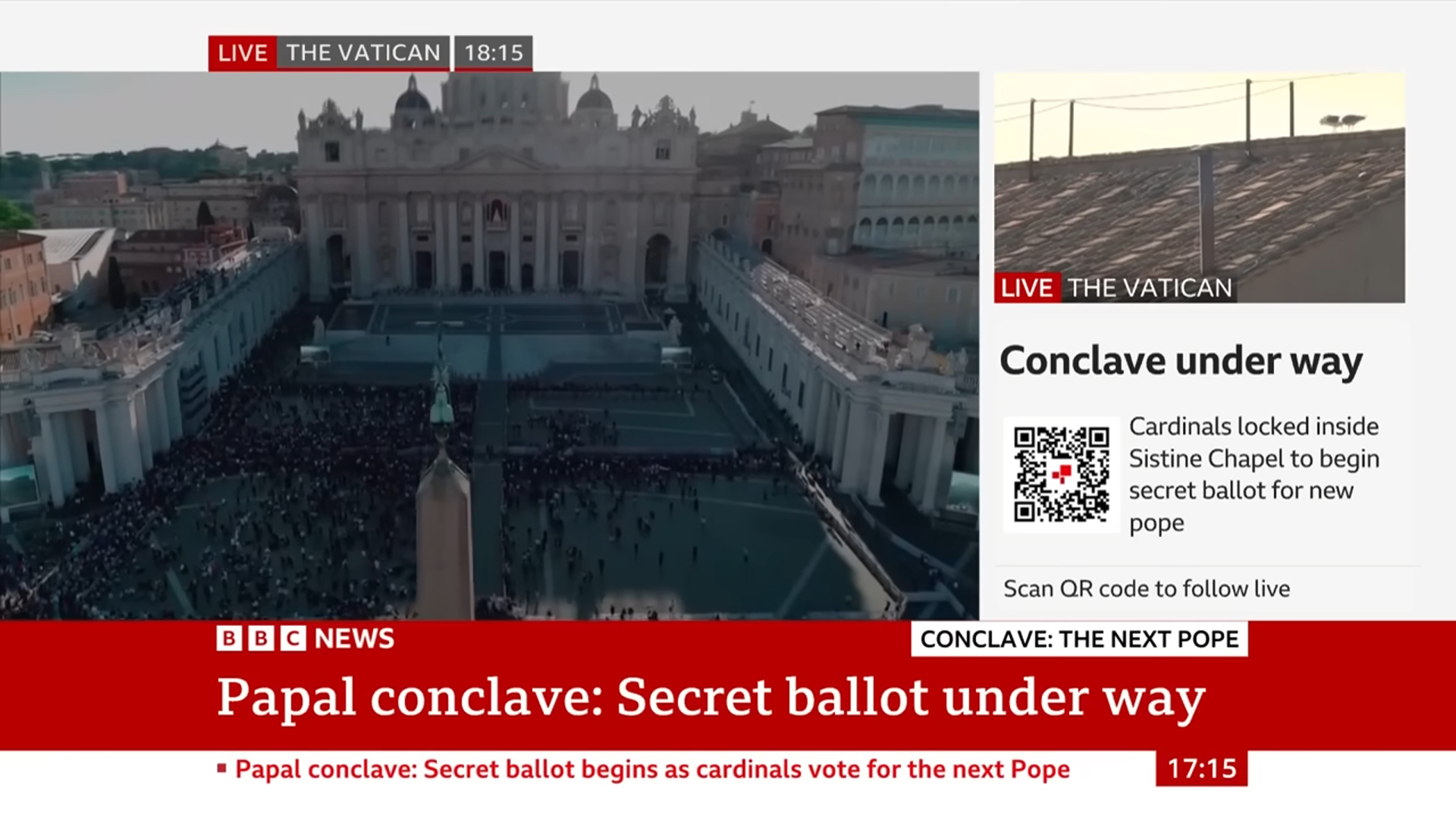
Perhaps this might sound like a non-sensical statement (or a dangerous one at that), but I’m incredibly proud of that panic attack – it served me as a crystal clear indicator that I was exactly where I needed to be in that part of my life. As I explain in the first entry of this blog series, resistance is a powerful force which acts against your long-term growth, and is most powerful when you are at the apex of achieving something big.
I was just a few days away from starting one of my biggest jobs to date. Resistance fucking hates that. It can’t stand it. It will try any old trick in the book to make sure you fail – after all, immediate gratification is much easier to achieve and much less cumbersome on the brain and body.
Yesterday we had a successful finale to season 3, and partied up until 6AM to celebrate. I’m proud to report that resistance got the middle finger.
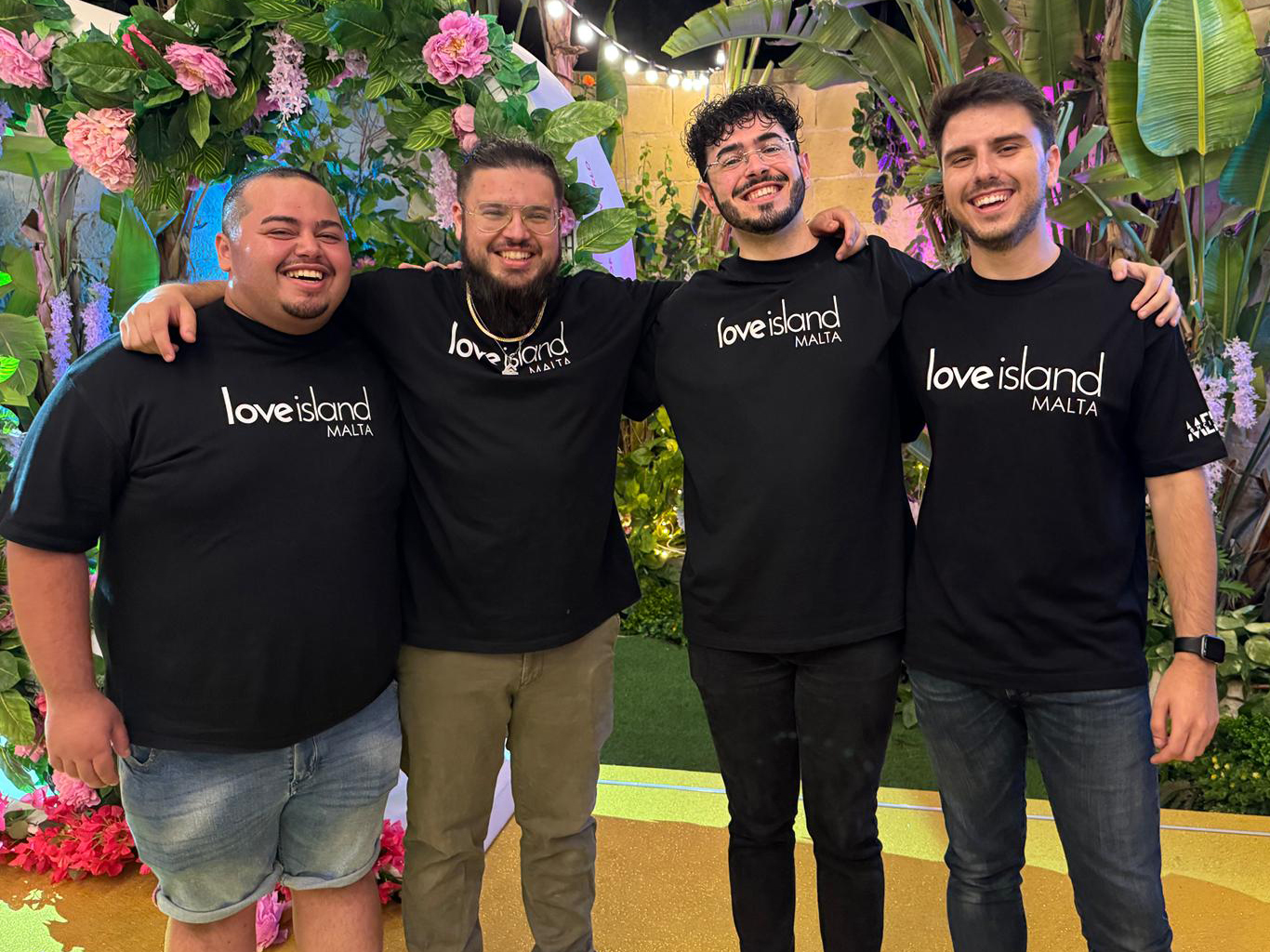
Now, whilst I can’t delve into specifics of how the show is run due to contractual obligations, I’d like to share some further insight into the show’s production elements. It is my personal belief that Love Island Malta is a model case study of how a TV production should be run.
Back in 2021 when I was at a film journalism workshop at the Venice Film Festival, I remember one of our mentors telling us: “if your reviews only throw praise at a film, it might be considered by readers as an advertisement”.
Perhaps you understand my predicament – I have nothing but praise for how the show is produced. I’ve learned many valuable lessons about production management from Lara that I’ll carry with me to future film jobs. I’ve distilled these insights into 7 concise bullet points – primarily for my own reference – but I’m sharing them with you as well.
- Love Island Malta fostered an environment where everyone felt valued, respected, and empowered to contribute – regardless of their position. It wasn’t uncommon for someone from marketing or sales to enter the control room and suggest a nice shot for me to use. On any other film/TV set worldwide, this would have you fired on the spot! This was a huge breath of fresh air for me.
- Crew welfare was exceptional. We were always provided with fantastic catering – energy drinks, smoothies, salads, ice creams, burgers – all complimentary. Nobody brought packed lunch from home. This is something that many productions, at all budget levels, tend to skimp on. Like money, food is a phenomenal motivator.
- There was no ego or pompousness anywhere on set. Everyone in the crew had their feet firmly planted on the ground and remained humble. This wasn’t coincidental, and I suspect Lara did a lot of pruning in the first season to eliminate ego maniacs. I remember her explaining in my initial interview that she’d rather employ someone without experience but eager to learn than someone with decades of experience who’s difficult to work with. I concur.
- Roles and responsibilities were clearly defined – everyone knew their part, and work was distributed evenly. When challenges arose, there were many hands on deck that were happy to help.
- The production invested in top-tier equipment, ensuring no compromises on quality. This applied not only to the control room but also to the editing suites and other technical departments. Our only bottleneck was ourselves, not our tools.
- Lara prioritized our health. During Casa Amor, I directed the main villa while Mick handled the casa, which often extended my shifts to 12+ hours. Most production managers would ignore this, choosing to shut crew members up with overtime pay and broken turnaround fees. Instead, Lara recognized the burnout risk and gave us significantly shorter shifts the following week. Scheduling is everything.
- Team-building, team-building, team-building. Love Island cultivated a culture where, during downtime, we’d engage in bizarre, silly conversations and flood the crew chat with jokes. Everyone knew their job so well and had developed such good chemistry that often, work turned into play. Furthermore (and if you can forgive the cliché), we weren’t simply workmates – we were a family.
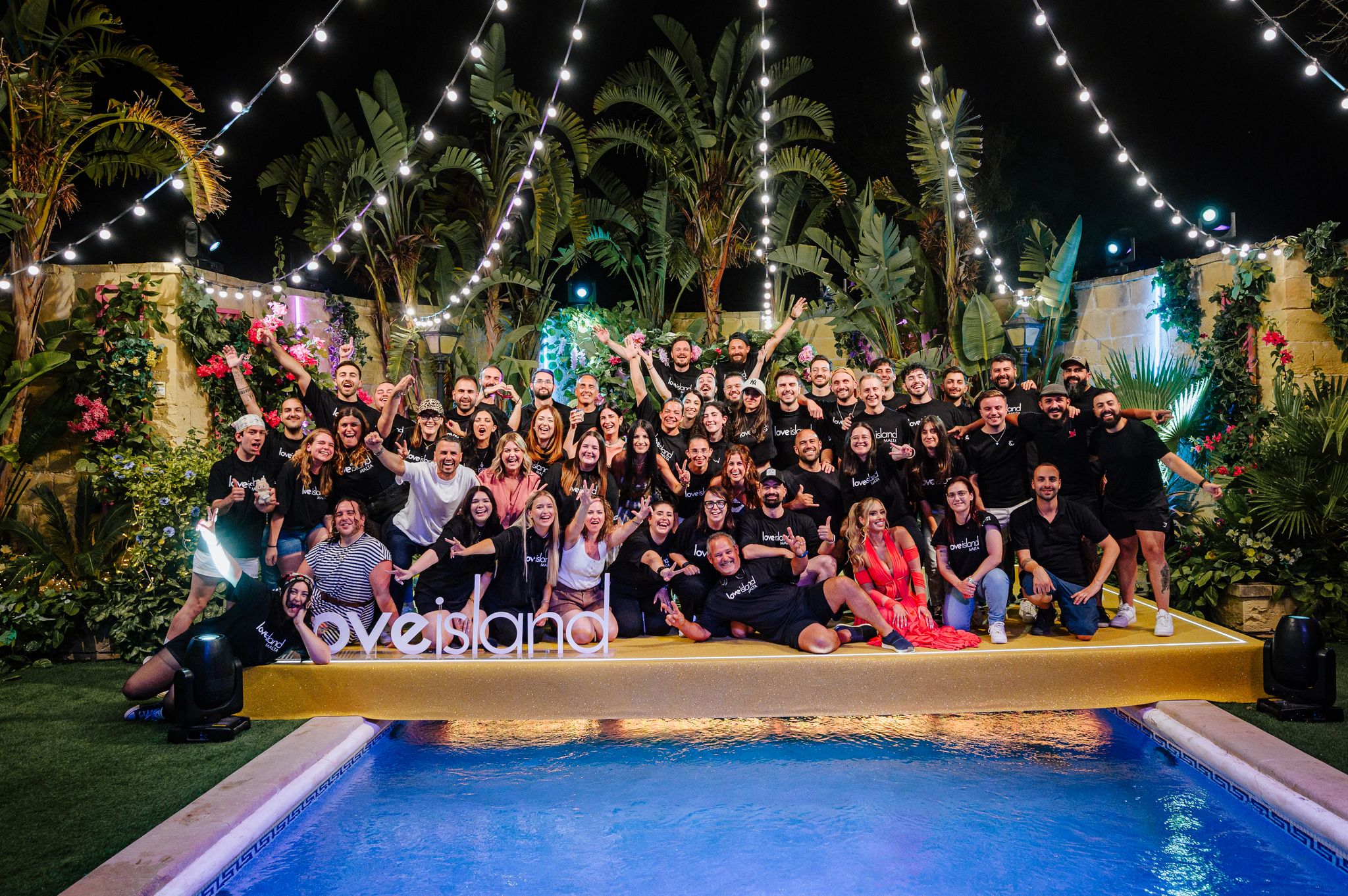
I think that about sums it all up, really. Thank you for reading, and thank you for watching.❤️